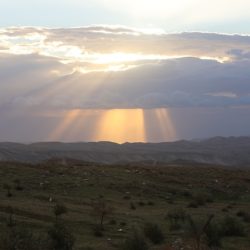Bible verses about grass

Grass, a common element in our natural environment, holds a unique place in Biblical literature. It’s often used metaphorically to represent various aspects of human life and spiritual truths. Let’s explore how grass is portrayed in scripture, offering insights that resonate with our everyday experiences.
The Symbolism of Grass in the Bible
- Transience of Life: Grass often symbolizes the fleeting nature of human life.
- God’s Provision: It also represents God’s provision and care for His creation.
- Contrast with the Eternal: Grass is frequently contrasted with the eternal nature of God and His word.
Key Verses and Their Meanings
1. The Brevity of Life: Isaiah 40:6-8
“All flesh is grass, and all its goodliness is like the flower of the field. The grass withers, the flower fades; because the breath of the Lord blows on it. Surely the people are grass. The grass withers, the flower fades; but the word of our God stands forever.”
- Interpretation: This passage poignantly illustrates the temporary nature of human life compared to the enduring word of God.
2. God’s Care for All Creation: Psalm 104:14
“He causes the grass to grow for the cattle, and plants for man to cultivate, that he may bring forth food out of the earth.”
- Interpretation: This verse highlights God’s provision for both animals and humans, using grass as a symbol of His sustenance and care.
3. A Reminder of Mortality: 1 Peter 1:24
“For, ‘All flesh is like grass, and all its glory like the flower of grass. The grass withers, and its flower falls away.’”
- Interpretation: Echoing Isaiah, this verse reminds readers of the fleeting nature of human glory and life.
4. Grass as a Metaphor for Nations: Psalm 72:16
“There shall be abundance of grain in the earth on the top of the mountains. Its fruit shall wave like Lebanon. They of the city shall flourish like grass of the earth.”
- Interpretation: Here, grass is used to symbolize prosperity and flourishing, indicating a time of peace and abundance.
Practical Reflections from Grass Imagery
- Embracing Life’s Temporality: The imagery of grass in the Bible encourages us to reflect on the transient nature of our lives and to focus on what is eternal.
- Appreciating God’s Provision: The growth and sustenance provided by grass remind us of God’s care in our daily lives.
- Understanding Human Limitations: The contrast between the withering grass and the everlasting nature of God highlights human limitations and the need for divine guidance.
Grass in Parables and Teachings
- The Parable of the Sower: In Matthew 13, Jesus uses the image of seeds falling on different types of ground, including among thorns, which can be likened to grass, to teach about receiving the word of God.
- Teachings on Worry: In Matthew 6:30, Jesus refers to God clothing the grass of the field, which is here today and tomorrow is thrown into the fire, to teach about reliance on God rather than worrying.
Grass, though a simple and common element of nature, holds profound symbolic meaning in the Bible. It serves as a metaphor for the brevity of life, the certainty of mortality, and the contrast between the temporal and the eternal. It also reminds us of God’s provision and care for all His creation. By reflecting on these verses, we can gain a deeper appreciation for the natural world around us and the spiritual lessons it imparts. The Biblical portrayal of grass invites us to ponder our own lives, recognize our dependence on God, and focus on the eternal truths of His word.






























